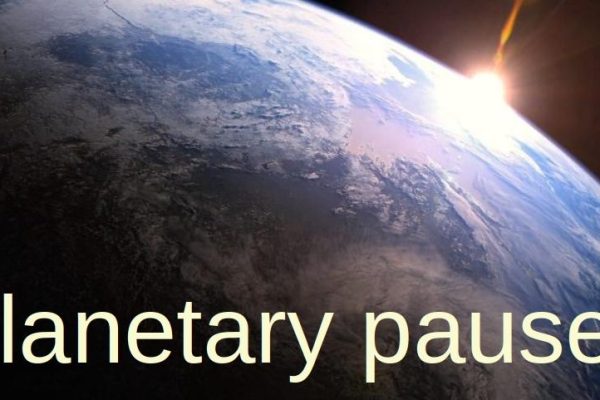
When somebody is totally inept at his job, in Italy it is sometimes said that this person is nothing more than “arms stolen from agriculture”. By this it is meant that such an empty-headed should farm, because anybody is skilful enough to dig the soil and grow plants, and leave the ‘normal’ job to smarter workers. Agriculture is seen by many as part of the past, even though we all are completely dependent on it. Farming practices are often thought as slow-paced, tiring, and intellectually dull activities, and therefore most young people do not even consider working in a farm.
I grew up in a big town surrounded by fields, but besides the couple of visits to local farms during primary school my knowledge about growing plants was limited to the basil my mother keeps on the balcony. Sometimes it turned yellow, sometimes it was growing beautifully, but the causes of these changes have always been a mystery to me (and to my mum, I strongly believe).
I am certain I am not that much of an exception among the people who grow up in cities nowadays. In fact, even though everywhere I go I see how people pay attention to the food they eat making better choices when buying produce or cooking a meal, we are getting so far from the source of our food that the majority of us couldn’t tell the difference between weeds and the tomato plants of which they have been enjoying the product since they were little.
I think in our society we are taught two contrasting things, sometimes by the very same people or institutions, making the matter even more confusing.
First, we are encouraged to achieve the highest degree of freedom, or better said, independence. Examples may be opening a shop, starting a small company or working as freelance professional, and this concept has found a simple and effective motto: “be your own boss”. This is appealing to many youngsters because the perspective of working for yourself, often driven by passion, and having complete decisional power gives strong motivation, an exciting degree of responsibility and a sense of mission that often lacks in other kinds of careers. If you fail you can keep in mind that you could be fired from any job position, given the global economic situation and volatility of the market, and if you succeed it will be because of your own ability to make crucial choices. Often profit is seen as a less important factor: the focus is on being independent and following your own passion, so having a low income for an undefined period of time is a risk worth taking.
Second, we are often told that in the current job market we should aim for the safest career we can have. Becoming a government employee, a bank clerk or having literally any decent position we can keep with the smallest fear to be fired is a compromise we are told is worth the chance of having a working life that doesn’t satisfy our expectations. By planning our life this way, it is said, we would reach the financial stability that can allow us to buy a house and spend our (short) holidays where we want.
None of these two concepts explicitly includes agriculture, which is as always confined to what is thought the out-of-time category of the population par excellence, even though I now think it can possibly be the most suitable solution to combine the best aspects of both.
What I am experiencing in Mae Tha unexpectedly showed me how anachronistic my idea of agriculture was. Coming from the Netherlands, where I study Fair Trade Management, to a rural area of Thailand, I was expecting a very low life pace and little contact with other areas and cities. Moreover, I was prepared to live for the first time in a farming community at close contact with a very different kind of persons I usually spend my time with.
Even though I didn’t have the ignorant prejudices of the society I grew up in, I was totally surprised to see how the young farmers manage their extensive network.

Pui giving a training about organic seed production.
Every week I spent here students, farmers, professionals, or government representatives came visiting to learn from the local farmers and share their knowledge. Freshmen from the university came to see first-hand the principles of organic agriculture, and functionaries from the ASEAN (Association of Southeast Asian Nations) visited to learn about the land policies and natural resources preservation in Mae Tha. Television journalists and marketing experts from Bangkok joined some everyday chores to observe how the young farmers are organised and try to explain the strength of this group. My idea of Mae Tha being a remote rural area was clearly totally wrong.

Un, one of the young farmers of Mae Tha, harvesting.
The local cooperative and its members are part of a large network of NGOs, farmers groups and universities projects (currently 27 students from the US are visiting). The main purpose of these collaborations is to share knowledge and provide support to the farmers. Often, in fact, young farmers travel to other regions to help setting goals, develop sustainable practices and monitor the process of changing from conventional to organic farming.
The older members of the community have experienced conventional mono-crop agriculture, but year after year the debt was becoming unbearable and the soil and the farmers’ health was in poor condition. In addition, the cost of the seeds and chemical inputs was making the farmers’ life impossible. When Do (28) was a kid, he was used to play at Un’s parents organic farm. “In their farm they planted only the vegetables they wanted, we could eat a lot straight from the plants and there was work to do. In my parent’s corn farm there was nothing I could eat and almost no work because one person was often enough to manage everything. There is such a difference with organic: my parents cannot use their farm for own consumption and have to spend all the money from the sales in food and agricultural inputs. In organic agriculture you do not earn as much, but you have enough to buy all you need and there is always plenty of food. This gives a great freedom to organic farmers: to plant whatever you like to eat and not worry about debts. When I finished school I took a job in the factory, thinking that after some time showing that I am a good worker I could get a better position, maybe becoming a manager, since I always wanted to make decisions myself. It didn’t take long, though, to realise that there was no career opportunity there, nobody would get a promotion and many ended doing the same job all their lives. My life was just working long shifts and having no time to socialise with colleagues or anybody outside work. I decided to quit and work together with my parents, but I soon realised how better the lives of organic farmers were. I joined some trainings held by the cooperative and visited many organic farms. Shortly after I started my own sustainable farm.” explained Do.

Do during a meeting at the Mae Tha Organic Center.
Farmers give and receive trainings and workshops to constantly improve the quality of their practices as well as test new varieties and develop new markets.
Their knowledge covers the whole value chain, from the seed to the table, including logistics, PR and marketing. Green Net supports them by providing knowledge, covering costs for organic certifications and helping maintaining and developing markets and networks.
When I asked opinions on people’s prejudices about farmers, the young farmers answered that they are mainly the product of ignorance. “People associate farmers with ugly clothes and no interests outside the field. We are just like any other young people group: we like having a good time in the city, partying and going shopping for example. So we enjoy exactly the same things”.
“I have many friends who work as designers, architects or have other good jobs. When we meet I am never shy or ashamed of my profession, and the same counts with anybody else. I have my knowledge to share and with my work I bring food to the people. I think this is very important. Sharing is fundamental to me, and this is why I went to the US for six months to meet farmers from around the world to learn from them and teach what I know. Here we believe that not only leaders should travel to meet and share, young people are crucial in spreading knowledge. ” Un, 30 years old, added.

Un, Ton, Do, Perk and Toon at Toon’s farm.
These young farmers are colleagues and friends at the same time, so I asked Un if he thinks it is possible to start farming where the community is not as strong or not existing at all. In fact, I think many people would consider farming or just growing some vegetables but lacking experience and support from others stops many from starting. Un answered: “It’s true, we are more than colleagues and often in our meetings we discuss any sort of problem, not only work. Our group is strong, and that is great. However, the technology we have is a fantastic tool that can connect us with so many people around the world. If you want to start growing plants when you’re back in the Netherlands, but have doubts or questions, you can communicate with us and with many other experienced farmers. You are not alone, there is a huge network where people share knowledge and experience with others.”
During my stay in Mae Tha I learnt that taking care of the environment, keeping the traditional knowledge alive while learning new techniques and maintaining the livelihood sustainable financially are the pillars this community is based upon. The work is hard but I have the conviction that young and older farmers would not change this sustainable way of life for less physical effort or some more money at the end of the month. My studies about sustainability did not teach me as much as talking to the villagers, who now for me represent a fantastic example of strength and successful long-term thinking I will be glad to talk about in my future. I can hardly think of any suggestions I could give for improvement, and I am sure that the teachings I received during these 10 weeks reshaped my idea of sustainable life. Now, when I hear somebody saying: “arms stolen to agriculture” in that ignorant denigrating way, I have the strongest arguments to convince how unknowledgeable about agriculture this person is.
Author: Gregorio Ferrazin, gregorio.ferrazin@wur.nl


